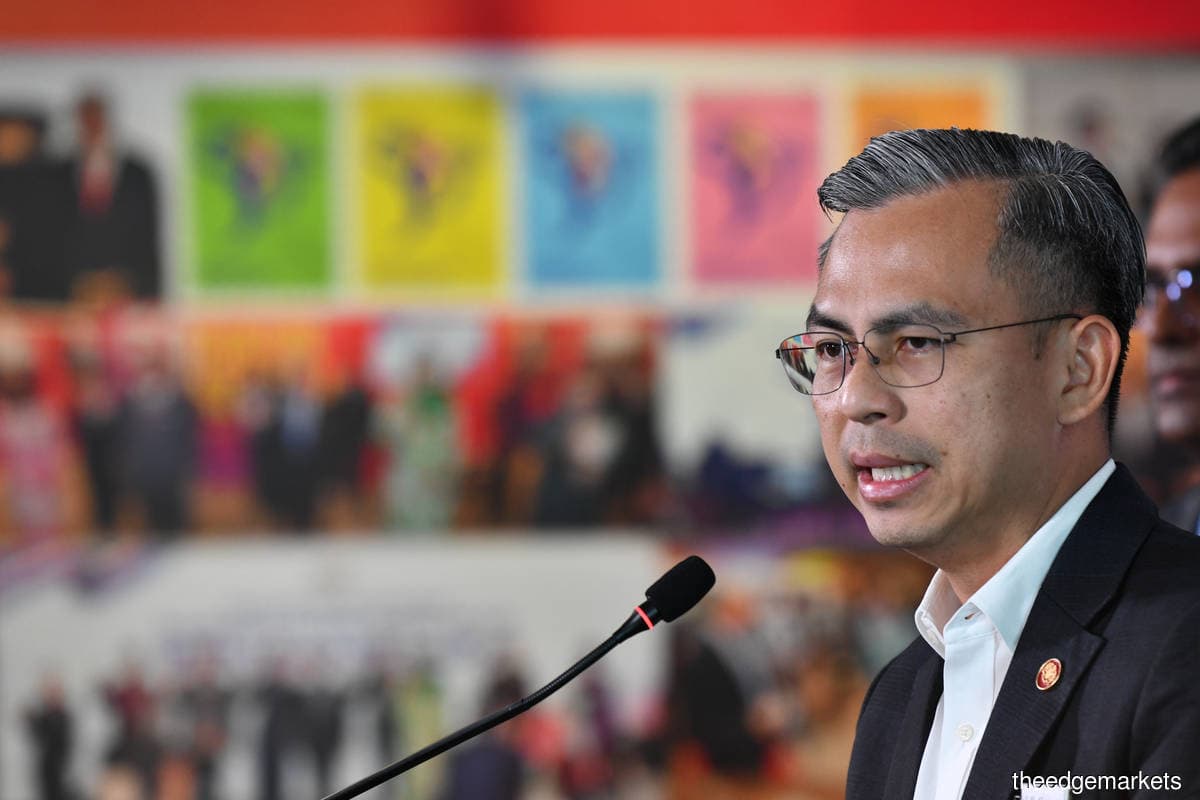
PUTRAJAYA (May 3): Minister of Communications and Digital Fahmi Fadzil has lauded the current single wholesale network (SWN) model led by Digital Nasional Bhd (DNB), saying it has helped accelerate the rollout of 5G network over a short span of time.
He commended DNB's efforts thus far as a “positive achievement”, and acknowledged that the award of the 5G rollout project to Ericsson (Malaysia) Sdn Bhd as the network equipment provider was done via a tender process.
“We cannot deny that efforts through DNB have brought about some benefits, which is the rollout of the 5G network being done at an accelerated pace within a short span of time,” he told a press conference here on Wednesday (May 3).
“It cannot be denied that, before this, there were issues that dragged the rollout of the 5G network, however, DNB has accelerated that. Now, not only do we want to accelerate the coverage of populated areas (Copa) to 80%, but other aspects — like single point of failure, redundancy and sustainability of the ecosystem — have also come into consideration in our decision making,” he said.
The total cost of 5G rollout is RM16.5 billion over a 10-year period, comprising RM12.5 billion for the network equipment and infrastructure — to be carried out by Ericsson — as well as RM4 billion in corporate costs.
Asked if the government’s five-month review on the SWN model found any wrongdoings, Fahmi said the review was not to identify wrongdoings, but merely to assess the existing model.
“We are not looking at that aspect [of wrongdoings]. Our remit is very clear — the question was about if we discovered any wrongdoings — our remit is to assess this model. We don’t know whether any of the other agencies are investigating the nature [of this model], whether they have had any investigations done.
“But as far as this [review] committee is concerned, we have been tasked with reviewing the model, which we have done. The job is not complete; in fact, this is the end of the beginning, so we have a long way to go. We will (still) be reviewing and assessing, most importantly, to ensure we will reach 80% CoPA by the end of this year, and to see through the Phase 2 of 5G rollout,” he said.
The nation's 5G rollout has been delayed by numerous speed bumps over the last few years, among which were industry concerns over pricing and transparency, worries that a single government-run network under DNB would result in a nationalised monopoly, and the few government changes in between.
The spectrum’s rollout under the SWN model was first unveiled in 2021 under the premiership of Tan Sri Muhyiddin Yassin. After Muhyiddin’s government collapsed that same year, Datuk Seri Ismail Sabri Yaakob was appointed as PM and his BN coalition took over the reins of Putrajaya.
In October last year, four major telco players — Celcom Axiata Bhd, Digi Telecommunications Sdn Bhd, YTL Communications Sdn Bhd, and Telekom Malaysia Bhd (TM) — executed share subscription agreements to collectively take up a 65% stake in DNB, while U Mobile Sdn Bhd and Maxis Bhd opted out.
The government originally had no plans to sell shares in DNB, saying it had no need to do so as the 5G rollout did not need any government funding, as it relies on market financing. The stake sale plan was only proposed after a meeting with the telcos. The offer then was for a 70% stake sale to the six telcos, which were initially allowed to take an 11.67% stake each. With Maxis and U Mobile opting out, the four other telcos took up a bigger stake, while the government retained an additional 5% stake at 35%, instead of 30%.
U Mobile later joined the other four telcos in inking 5G access agreements (AA) with DNB, leaving only Maxis yet to agree to use DNB’s network. In November last year, the latter said it wanted to seek its shareholders’ consent first.
Following another change in government after the 15th general election and the new administration's announcement that the 5G rollout model would be reviewed, Maxis in January said it would postpone seeking its shareholders' approval to sign the AA with DNB, saying it would wait till the government finalised its 5G implementation policy.
With the government’s decision to stick with the SWN model, all eyes will be locked on Maxis for its next move.
Attention will also be focused on who would be the potential parties that would band together to establish Entity B, which Fahmi said would be allowed to start developing the nation’s second 5G spectrum network under Phase 2 of the 5G rollout as early as January next year, when the nation will move to a dual wholesale network model once the 5G coverage under DNB hits 80% of populated areas.